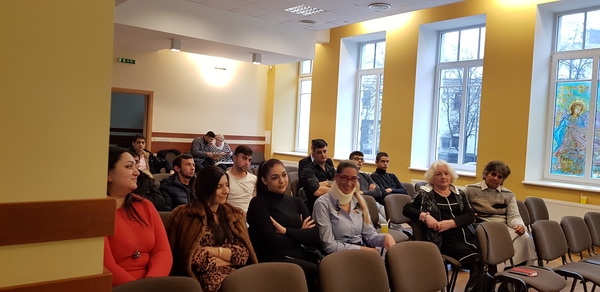International Congress on Discrimination based on Work and Descent tackling Casteism, Antigypsyism, Traditional and Contemporary forms of Slavery and Other Analogous Forms of Discrimination (ICDWD)
21-23 September 2019, New York
From 21 to 23 September, a delegation of Roma activists from ERGO Network took part in the International Congress on Discrimination based on Work and Descent tackling Casteism, Antigypsyism, Contemporary forms of Slavery and Other Analogous Forms of Discrimination, which was held in conjunction with the United Nations General Assembly in New York. The ERGO Network delegation consisted of ERGO Network director Gabriela Hrabanova, Michal Miko (RomanNet, Czech Republic), Isaac Blake (National Federation of Gypsy Liaison Groups, UK) and Vesa Batalli (Voice of Roma, Ashkali and Egyptians, Kosovo). The conference was co-hosted by the Asia Dalit Rights Forum, the African Network on Discrimination based on Work, Descent and Contemporary Forms of Slavery, ERGO Network, the Inclusivity Project, Trust Africa and Boston Study Group.
The Conference was preceded by a Parliamentarian’s Roundtable on discrimination based on work and descent, hosted in the Permanent Mission to the UN of Senegal.
Communities discriminated based on Work and Descent (DWD) are some of the most excluded, segregated, and marginalized groups at the global and local levels within their social, economic, political, and cultural systems. The inequalities and disadvantages they experience exist in various services like education, hunger alleviation, health, water and sanitation, employment, voting rights, equal access to land and housing, access to religious institutions in the public sphere, disaster risk reduction and environmental health, some of which are represented in SDGs through definite goals. Gender equality, peace and justice constitute cross-cutting, significant determinants, which must be addressed to mitigate inequalities within the countries.

The Congress adopted the New York Declaration: Global March Forward to Eradicate Discrimination, calling upon the United Nations and States Parties to adopt effective measures towards ending all forms of discrimination based on work & descent, untouchability, antigypsyism, socio-cultural beliefs, and other analogous forms of discrimination including contemporary forms of slavery.
The ERGO delegation furthermore took part in the People’s Assembly organized by the Global Actions against Poverty and the United Nations Civil Society SDG Forum, which aimed to create a space for constructive and propositional dialogue between civil society and UN Member States, international organizations and other related constituencies on the possible responses to the challenges exposed by the first four years of implementation of the 2030 Agenda for Sustainable Development.






